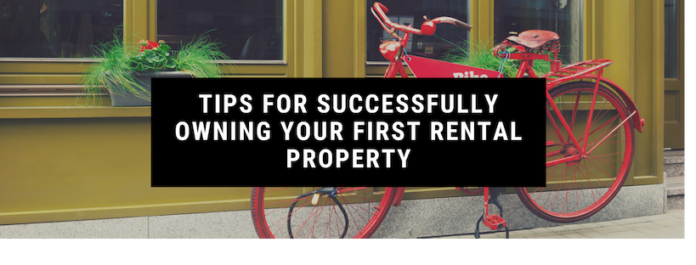When looking to diversify your income, you may want to consider investing in property. Owning real estate can be extremely profitable. The value of your property will likely increase over time even as you earn money from tenants living in your building.
However, the process associated with purchasing real estate – especially for commercial purposes – is not straightforward. The following is a basic outline of the steps that you should take when looking for and purchasing your first rental property.
Research Which Property You Want
The first step of purchasing a rental property, like all other types of investments, is researching what you’ll be spending your money on. The first step of this process is determining where you want to own property. Different areas will have different demographics, different regulations, and different property taxes.
For example, if you own a property in an area dominated by young working professionals, you won’t necessarily want to rent the property out to a family. Students are likely not a great fit for a neighborhood made up of retirees.
You’ll also want to figure out what the average rent is in the area. This will help you get an idea of what your income will be and how long it will take for your property to recoup the initial investment cost. You should also find out what the property taxes are, and what, if any, zoning or building laws exist. These could limit the improvements you may want to add on to existing structures.
Different types of properties will carry different maintenance and upkeep requirements. Large apartment buildings will likely need staff on premises for security and maintenance. This can increase your overhead, while multifamily homes won’t, but will be able to fit fewer tenants, limiting your revenue.
Once you have an idea of where you want to rent, who you want to rent to, and which type of property you are looking for, you should hire a real estate agent to help you with your search and the purchasing stage of the process.
While you can look for a property yourself, it’s a good idea to hire a real estate agent to narrow your search for you. Real estate agents will know the neighborhood you are looking at very well. They can draw from an existing network of colleagues to find a wider range of acceptable locations than you could on your own.
Financing and Purchasing
Your real estate agent will be able to show you multiple options. Once you’ve picked the one that best fits your needs, you can begin the financing process.
If you already have enough money raised and ready, you can go ahead and buy a property outright. In most cases, you will instead place a down payment on a property and pay monthly through a mortgage that you negotiate with a bank. Ideally, your rental income will be more than your mortgage payment.
It’s a good idea to get a mortgage even if you have the funds to buy a property outright. The interest charged on mortgages can be deducted from your taxes, and because mortgage payments can help build your credit rating.
However, paying cash for a property saves you both time and money, as you won’t have to qualify for a mortgage or pay interest on the property. You should always have some cash available above and beyond the price of the property. This will help you pay for the repairs, maintenance, upgrades, and other necessary expenses which may come up.
Make sure that professional inspectors have a chance to look over your property before you complete the purchase. You must make sure that you are well aware of any maintenance issues that exist so that you can plan the repairs.
You should also ask the current owner for financial documentation or tax returns relating to the property and its income. This will give you a clear idea of what your property taxes will look like and an exact figure for monthly rent.
If possible, you should also prioritize properties that already have long-term tenants living in them. A change in ownership means that you will collect the income instead of someone else, but it saves you the trouble of cleaning and showing your property to potential tenants.
Maintenance and Cleaning
Before you can begin showing your property to potential clients, you have to make sure that the space is both livable and attractive. Your inspection results can help you deal with large repairs like plumbing damage or heating systems that don’t work. You should also pay attention to smaller changes to spruce the space up.
A new coat of paint over the walls, replacing or cleaning old carpeting, and cleaning the light fixtures are all simple tasks that can boost a property’s appeal.
You should also hire a locksmith to change the locks before a tenant takes occupancy in the property. You don’t know who else may have an old copy of the key, and by replacing the locks you ensure that only you and your new tenant have access. You should do this in the future every time a tenant moves out, for the exact same reason.
Showing the Property and Preparing the Lease
You don’t have to hire a real estate agent to find a tenant if you want to save on their fees, but you may want to consider doing so to save yourself time from doing advertising and planning showings. This is an especially important consideration if you are conducting major repairs or renovations to the property. Managing multiple projects increases the risk of letting something fall through the cracks.
Your main concern when looking for tenants is making sure that you pick someone reliable to live in your property. The worst thing that can happen to you (and your bank account) is to have someone who skips out on rent, causes damage to the property, and leaves you footing the bill without notice.
This means that you should always do background and credit checks on anyone who expresses interest in renting your property. You may also want to require applicants to include the phone numbers of employers, past landlords, or other personal references. This helps you verify a current source of income or their conduct in old apartments.
Documentation, Deposit, and Your First Rental Property is Set Up
Finally, the last thing that you need to do once you have found a reliable tenant is to sign a lease and finalize the move. Most states will have their own standardized lease format which you can follow to make sure that your agreement is legally binding.
Depending on local laws, you should also ask for a deposit. This can be a small sum, or one or two month’s rent. It covers any potential damages that your tenant may cause to the apartment outside of normal wear and tear during their stay.
You should also check to see how your state wants you to handle that security deposit legally. In Maryland, for example, the maximum security deposit you can charge is two months of rent. You also need to keep it in a separate account and return it to the tenant within 45 days of them moving out, less any charges you make.
Once the lease is signed and the security deposit received, your first rental property is set up. You can expect to receive a steady stream of income from your tenants. Beyond maintenance and upkeep, this income is passive (so long as you’ve screened your tenants properly and don’t have to chase them down each month to collect your rent payments). You can begin to look at expanding your real estate holdings.
Building Your Real Estate Portfolio
Your first rental property will provide you with a reliable source of side-income. If you want to support yourself and your family through property ownership, you will need to create a plan to build a real estate portfolio.
You may even want to consider branching out into commercial real estate, purchasing spaces for small or large businesses, or even office space that you rent or lease out, to protect against potential dips in the residential market.




















